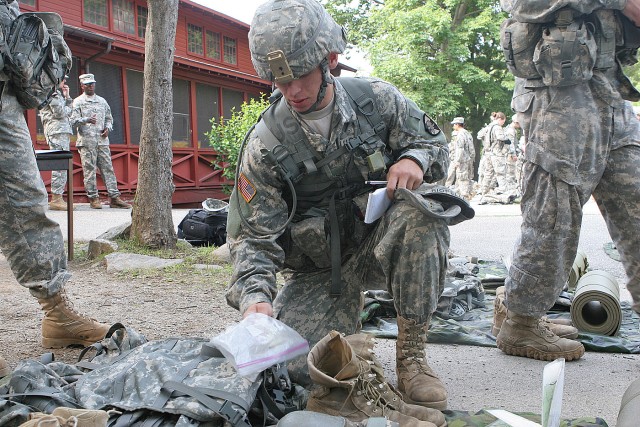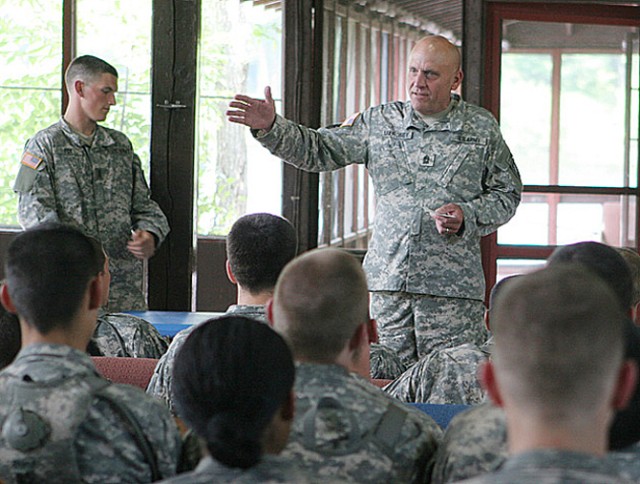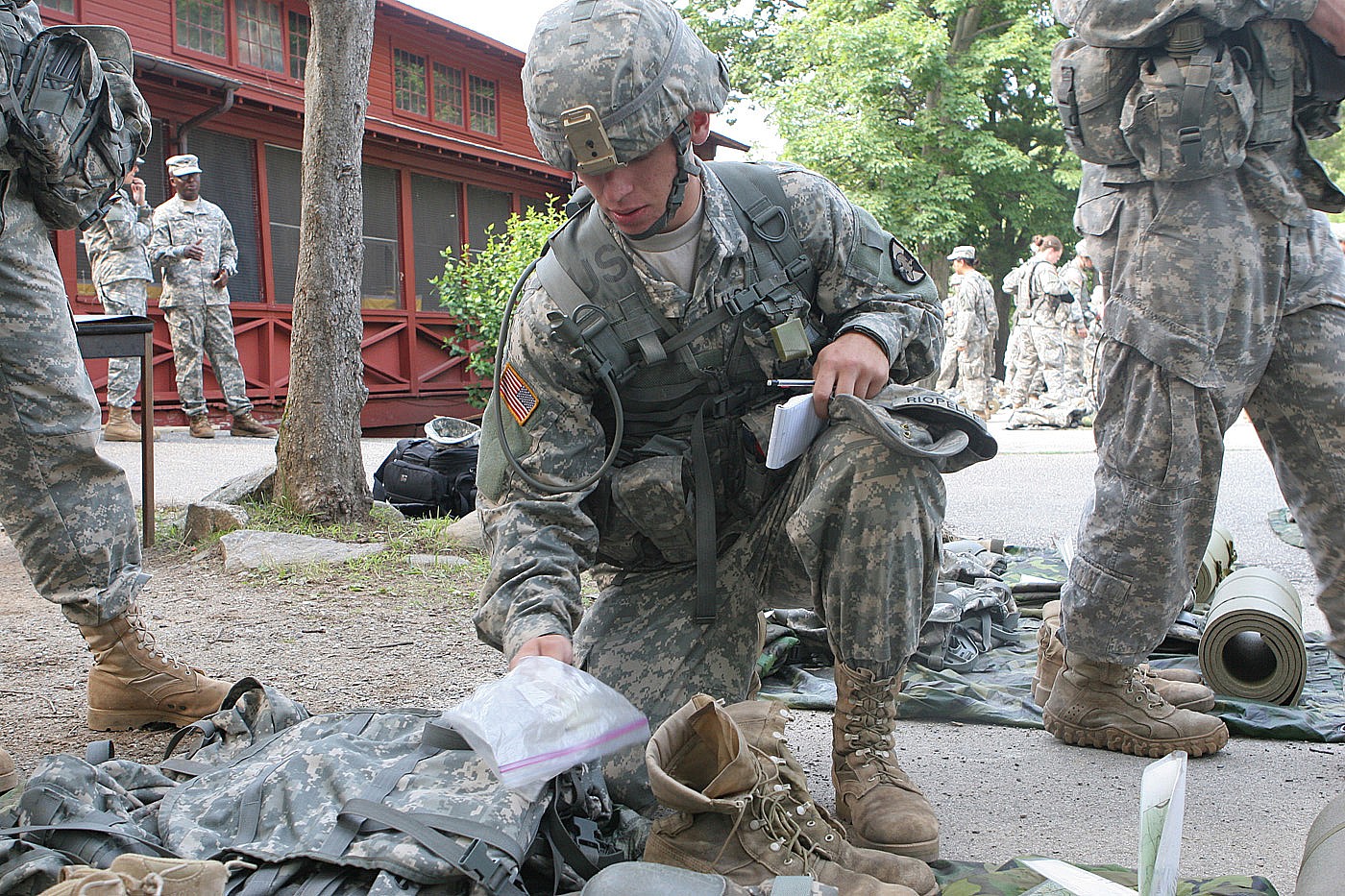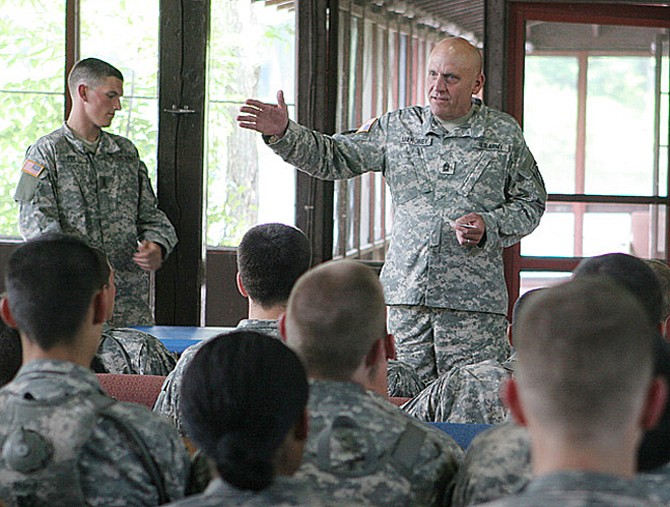"Lead by example"--those were the words emphasized during the Yearling's two-day Noncommissioned Officer Academy training.
Though their ultimate goal at West Point is to become commissioned officers, the Yearling class is preparing to serve as team leaders to their underclassmen over the next year.
The purpose of the NCO Academy is to teach cadets the importance of the NCO--commonly referred to as, "the Backbone of the Army"--while introducing NCO leadership skills to prepare cadets for assuming team leader responsibilities during the academic year, said Maj. W. Cochran Pruett, 7th Company, Cadet Field Training tactical officer.
"Although not exclusively, the program was designed to focus on the roles/responsibilities of the team leader, both in the Army and at West Point," Pruett said.
The goals of a team leader--who conducts most of the day-to-day, face-to-face interaction with individual Soldiers--are to mentor and lead their Soldiers by example.
The training highlighted those goals by focusing on three areas: the roles and responsibilities of the NCO, pre-combat checks and counseling in leader development.
Following group discussions on each area, cadets practiced them in practical learning exercises with other team members.
During PCCs, team leaders inspected each team member's equipment and noted any deficiencies.
They tried their hands at counseling by conducting developmental counseling sessions with team members.
During the training, several leader maxims were used to show how relevant the training was to accomplishing the mission.
"Setting the standard" encouraged team leaders to serve as examples their subordinates should work to become. Also, a key to solving problems as a team leader is "if you can't help (a Soldier), know somebody who can."
Before 7th Co. conducted its NCO Academy, Firstie Zachary Fox, cadet company commander, and Cow Steven Klecha, cadet first sergeant, received initial guidance from Pruett and TAC NCOs Sgts. 1st Class Daniel Phillips, Company H-4, and Billy Norwood, Company H-3.
"They came up with a workable plan and rehearsed the cadet leadership the day prior and the morning of the academy," Pruett said. "In the case of PCCs, they conducted a full rehearsal with all the company leadership in order to prepare."
Firstie Andrew Ferrara, of Company A-2 from Torrance, Calif., observed the training and how the guidance of combat veterans serving as TAC NCOs at West Point made the NCO Academy a focused and relevant block of instruction.
"I was able to talk with my TAC (NCO) on a lot of things about combat," Ferrara said. "It was something I knew little about and he was able to bring me into the loop about that."
In addition to cadet discussion and instruction, Command Sgts. Maj. Martin Wells, of the U.S. Military Academy, and Anthony Mahoney, of the U.S. Corps of Cadets, were available to answer questions from cadets and share their personal leadership experiences during the training.
In the Year of the NCO, this is just one more example of NCOs helping future officers learn their craft.
"We were certainly proud to have (their) active participation," Pruett said. "The wealth of their experience and knowledge was invaluable and their pointed inputs contributed greatly to the purpose of the academy."
After the NCO Academy training, cadets felt they had the proper tools needed to carry out the duties of a team leader.
The hands-on practice sessions taught the cadets to pay attention to details and encouraged team-building between leaders and their subordinates.
"Initial feedback from the cadets has been good. They highlighted the value of the hands-on practical learning portions of the academy," Pruett said. "I certainly hope this training will continue to be a part of CFT in the future."




Social Sharing